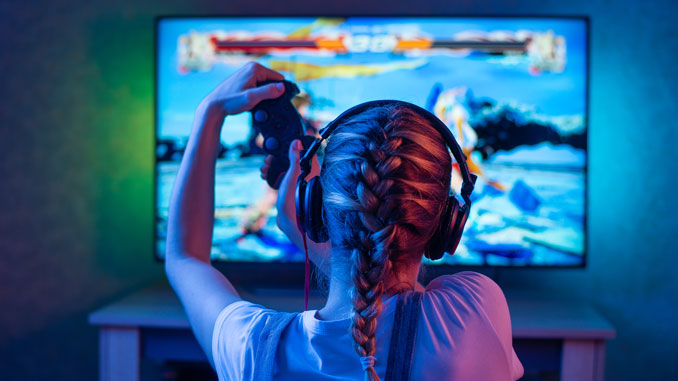
What are some of the negative affects of video game addiction in kids?
As the school nurse, disrupted sleep patterns are one of the first signs I see at school. When students are not getting enough sleep, they are not ready able to come to school ready to learn. Their grades begin to suffer. Often students will not complete homework assignments because they were too busy playing video games. Some students further turn to their video games to escape the reality of their suffering academics and this can spiral out of control quickly until the student feels that it is not even worth trying to recover their academics. Finally, students who are highly addicted to gaming often lack social skills to interact with human beings. They often are more comfortable with the security of the gaming world and the conversations held by virtual teams. Subsequently, in daily life it can become very challenging for them to be able to navigate simple conversations. Some students even begin to withdraw from interacting with humans as they prefer interacting with their games and technology instead. As a result, the future of the job market becomes daunting as the basic skill of effective communication between employees is becoming a lost art.
How prevalent is this problem? Can you speak to what you see in SJC schools?
It is definitely a problem across all grade levels. Sometimes what I see in school is a drop in grades, withdrawal from social situations, ineffective communication, and even a significant negative behavior change. All of these things impact not only the student’s ability to focus and learn in the class, but sometimes can also be a distractor for other students. Sometimes, as the school nurse, the teacher brings me into the conversation due to the affects it can have on the student’s sleep patterns or their grades. These students are sometimes sleeping through class and the teacher asks me to contact parent to see what is going on with their student. Frequently parents say that they are struggling to get their child to go to bed on time because the student just wants to stay up and play their video games. Parents often have tried setting boundaries and bedtime routines, but students wake up in the middle of the night and start playing when the parent is asleep. Often parents feel like it is a battle they just cannot win. We try to offer as much support and education as possible here at school. It is ultimately a marriage of teamwork at home and at school that is the most successful in getting a student back on track at school.

What advice do you have for parents in raising a child obsessed or even just very into video games?
Set boundaries or a time limit. Monitor the type of games your child is playing and set security measures in place to prevent them from being exposed to games with graphic content that is meant for mature audiences only. Be very clear about when it is appropriate to play video games and when it is not. Such as, “Games are ok to play after homework is completed, but not after 9PM”. This may be very hard to do, but is a necessary step towards ensuring adequate sleep and a well-rested body that is ready to learn the next day. Students often do not like these types of boundaries and parents have expressed to me that they actually take away the game or console after the established time. This can be very hard to do though because, as a parent, you want to do everything possible to make your child happy. However, putting these boundaries in place will ultimately force them to focus more on their academics and developing better social-communication skills. Their grades will benefit from the attention that they are appropriately allocating to their studies and ultimately their self-esteem will soar.
The last piece of advice I have for parents is to encourage your child to go outside and play instead of sitting sedentary in front of a gaming console or their phone. Students who are sedentary tend to suffer more from obesity, arthritis and often experience more mental health concerns than their age-like peers who go out to play. Whereas if a student is physical active at least 30 minutes to an hour each day, they will have a spike in adrenaline and endorphins which contributes to an increase in overall happiness. Ultimately, by just encouraging them to go outside to play you will increase their happiness and also reduce their risk of long-term negative health outcomes.
What do you think is the difference between healthy video game use and unhealthy video game use?
For me, healthy video game use is when the content is age appropriate and it is not impacting activities of daily living. Activities of daily living include things like self-care, sleep, chores and responsibilities like homework for a student. If a student is able to balance all of these things and still find time to play video games without becoming dependent on them for their happiness, that is when I believe there is a healthy balance. Unhealthy video game use is when their activities of daily living start to suffer. We see that most represented at school when they are not able to focus because they are too tired from gaming the night before or because their academics begin to suffer.

